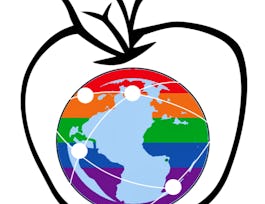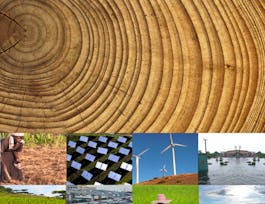In this course, learners will identify the types of actions that we can pursue to address climate change. These actions fall into two broad categories: 1) mitigation, which refers to efforts to reduce greenhouse gas emissions or enhance carbon sinks, and 2) adaptation, which refers to our preparations for climate impacts. We will explore the technologies, programs, and policies related to both mitigation and adaptation. Learners should leave the course with an improved ability to identify and evaluate climate actions undertaken by communities, governments, and businesses.


How Do We Manage Climate Change?
This course is part of Exploring Our Responses to Climate Change Specialization
Taught in English
Some content may not be translated

Instructor: Joseph Casola
4,054 already enrolled
Included with 
Course
(54 reviews)
What you'll learn
Explain the overall goals of mitigation and adaptation policies
Describe the primary sources of and recent trends in greenhouse gas emissions in the United States
Explain the concept of climate risk, and describe its components
Provide examples of mitigation policies and adaptation efforts
Details to know

Add to your LinkedIn profile
3 quizzes
Course
(54 reviews)
See how employees at top companies are mastering in-demand skills

Build your subject-matter expertise
- Learn new concepts from industry experts
- Gain a foundational understanding of a subject or tool
- Develop job-relevant skills with hands-on projects
- Earn a shareable career certificate


Earn a career certificate
Add this credential to your LinkedIn profile, resume, or CV
Share it on social media and in your performance review

There are 3 modules in this course
We will define and discuss examples of mitigation and adaptation.
What's included
3 videos1 reading1 quiz
We will dive deeper into climate mitigation, examining the various strategies for reducing emissions. We will also explore some of the policy tools, like carbon pricing, that can motivate and accelerate emissions reductions.
What's included
8 videos3 readings1 quiz
We will define climate risk, and demonstrate how adaptation strategies attempt to address different drivers of risk.
What's included
4 videos2 readings1 quiz1 peer review
Instructor

Offered by
Recommended if you're interested in Environmental Science and Sustainability

University of Colorado Boulder

University of California San Diego

University of Michigan

The World Bank Group
Why people choose Coursera for their career





Open new doors with Coursera Plus
Unlimited access to 7,000+ world-class courses, hands-on projects, and job-ready certificate programs - all included in your subscription
Advance your career with an online degree
Earn a degree from world-class universities - 100% online
Join over 3,400 global companies that choose Coursera for Business
Upskill your employees to excel in the digital economy
Frequently asked questions
Access to lectures and assignments depends on your type of enrollment. If you take a course in audit mode, you will be able to see most course materials for free. To access graded assignments and to earn a Certificate, you will need to purchase the Certificate experience, during or after your audit. If you don't see the audit option:
The course may not offer an audit option. You can try a Free Trial instead, or apply for Financial Aid.
The course may offer 'Full Course, No Certificate' instead. This option lets you see all course materials, submit required assessments, and get a final grade. This also means that you will not be able to purchase a Certificate experience.
When you enroll in the course, you get access to all of the courses in the Specialization, and you earn a certificate when you complete the work. Your electronic Certificate will be added to your Accomplishments page - from there, you can print your Certificate or add it to your LinkedIn profile. If you only want to read and view the course content, you can audit the course for free.
If you subscribed, you get a 7-day free trial during which you can cancel at no penalty. After that, we don’t give refunds, but you can cancel your subscription at any time. See our full refund policy.

